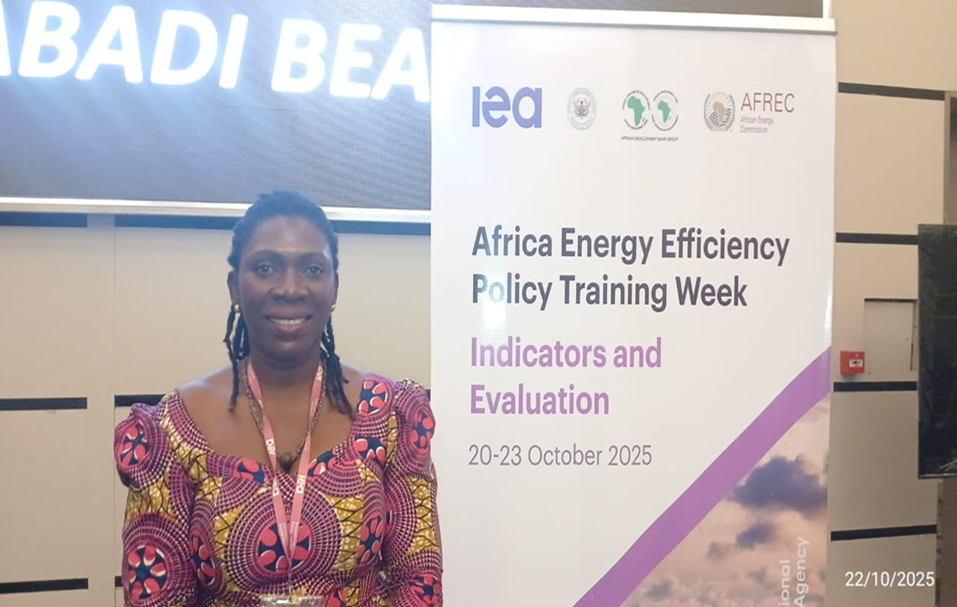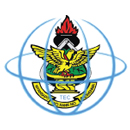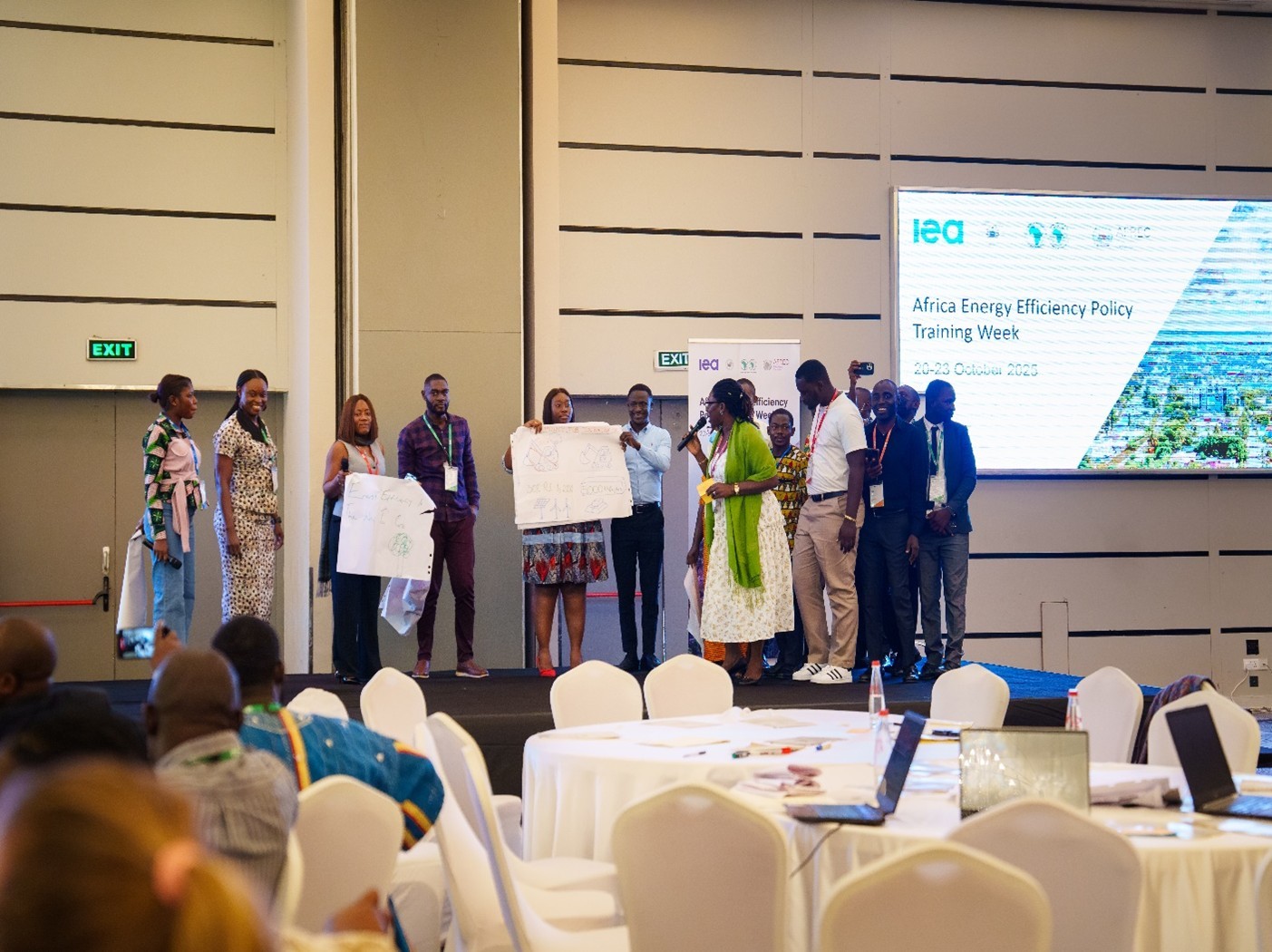Fellows from The Brew-Hammond Energy Centre (TBHEC) at the Kwame Nkrumah University of Science and Technology (KNUST) participated in the Africa Energy Efficiency Policy Training Week organised by the International Energy Agency (IEA) in collaboration with Ghana’s Ministry of Energy and Green Transition.
The four-day capacity-building programme took place in Accra from 20th to 23rd October 2025, with additional support from the African Energy Commission (AFREC) and the African Development Bank (AfDB). The event brought together policymakers, researchers, and energy professionals from across Africa to advance the continent’s transition toward sustainable and efficient energy use.
 Dr. Charlotte Asiedu, a fellow at the Brew-Hammond Energy Centre, highlighted that the training was designed to equip participants with the knowledge and tools to design and implement effective energy policies. It also sought to foster collaboration among key stakeholders committed to achieving the global goal of doubling energy efficiency by 2030 while improving the quality of life for communities across Africa.
Dr. Charlotte Asiedu, a fellow at the Brew-Hammond Energy Centre, highlighted that the training was designed to equip participants with the knowledge and tools to design and implement effective energy policies. It also sought to foster collaboration among key stakeholders committed to achieving the global goal of doubling energy efficiency by 2030 while improving the quality of life for communities across Africa.
Dr. Asiedu participated in the Indicators and Evaluation Stream, one of five concurrent training tracks aimed at strengthening technical and policy competencies. This stream focused on how data and evidence can be used to inform policy decisions, monitor progress, and assess the impact of energy efficiency initiatives. Participants were trained to develop national energy efficiency indicators across sectors, ensuring that future policies are grounded in measurable outcomes and aligned with international best practices.
Reflecting on the experience, Dr. Asiedu noted that the training provided valuable insights into monitoring and evaluation (M&E) frameworks that can be applied within academic, research, and consultancy settings.
“I am now confident in integrating these global best practices into my teaching, research, and advisory roles in the energy sector,” she shared.
Beyond personal growth, Dr. Asiedu emphasized that the training’s impact extends to KNUST’s broader institutional objectives. With enhanced capacity, she is poised to support postgraduate students conducting research in energy transition, renewable technologies, and policy development. She also expressed her commitment to leading future training sessions within the Climate Compatible Growth (CCG) Network, to build the capacity of faculty members and fellows in energy efficiency research and evaluation.

Another fellow, Dr. Peter Asigri, participated in the Industry Stream, which focused on designing and implementing industrial energy efficiency programmes. Sharing his experience, he stated:
“I gained valuable insight into designing and implementing industrial energy efficiency programs for industry, and my key takeaway was understanding the three main components of the industrial energy efficiency policy package which includes regulation, information, and incentives and how all these can come together to improve productivity, reduce costs, and lower emissions in our system”, he shared.
Dr. Asigri expressed his gratitude to the Brew-Hammond Energy Centre for its continuous encouragement and sponsorship, which enabled his participation in the training.
Other fellows from the Centre, including Dr. Bismark Baah and Dr. Kwabena Abrokwah Gyimah, also took part in the Africa Energy Efficiency Policy Training Week.

